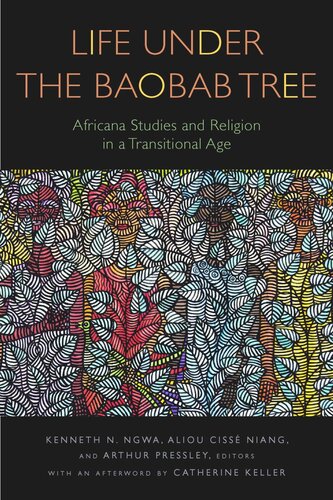

Most ebook files are in PDF format, so you can easily read them using various software such as Foxit Reader or directly on the Google Chrome browser.
Some ebook files are released by publishers in other formats such as .awz, .mobi, .epub, .fb2, etc. You may need to install specific software to read these formats on mobile/PC, such as Calibre.
Please read the tutorial at this link: https://ebookbell.com/faq
We offer FREE conversion to the popular formats you request; however, this may take some time. Therefore, right after payment, please email us, and we will try to provide the service as quickly as possible.
For some exceptional file formats or broken links (if any), please refrain from opening any disputes. Instead, email us first, and we will try to assist within a maximum of 6 hours.
EbookBell Team

5.0
70 reviewsLife Under the Baobab Tree: Africana Studies and Religion in a Transitional Age is a compendium of innovating essays meticulously written by early and later diaspora people of African descent. Their speech arises from the depth of their experiences under the Baobab Tree and offers to the world voices of resilience, newness/resurrection, hope, and life. Resolutely journeying on the trails of their ancestors, they speak about setbacks and forward-looking movements of liberation, social transformation, and community formation. The volume is a carefully woven conversation of intellectual substance and structure across time, space, and spirituality that is quintessentially “Africana” in its centering of methodological, theoretical, epistemological, and hermeneutical complexity that assumes non-linear and dialogical approaches to developing liberating epistemologies in the face of imperialism, colonialism, racism, and religious intolerance.
A critical part of this conversation is a reconceptualization and reconfiguration of the concept of religion in its colonial and imperial forms. Life Under the Baobab Tree examines how Africana peoples understand their corporate experiences of the divine not as “religion” apart from its intimate connections to social realities of communal health, economics, culture, politics, environment, violence, war, and dynamic community belonging. To that end Afro-Pessimistic formulations of life placed in dialogic relation Afro-Optimism. Both realities constitute life under the Baobab tree, and represent the sturdiness and variation that anchors the deep ruptures that have impacted Africana life, and the creative responses. The metaphor and substance of the Tree resists reductionist, essentialist, and assured conclusions about the nature of diasporic lived experiences, both within the continent of Africa and in the African Diaspora.
Engages and addresses why Black Studies and Spirituality, and Africana theorizing is fundamental in an age of ethnonationalism, imperialism, and ongoing constructions of identity formation.